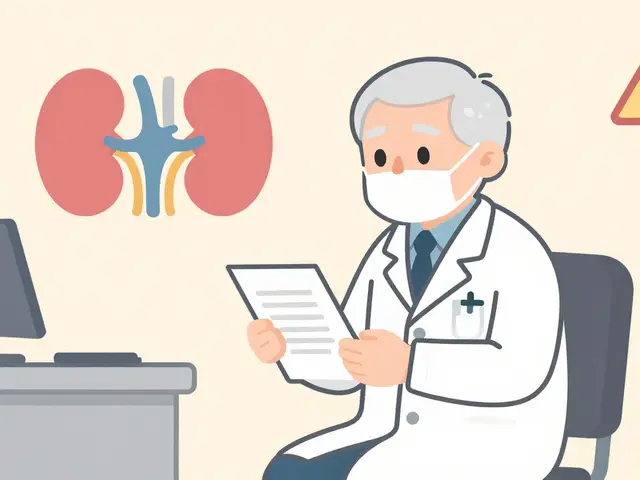In Nigeria, the rising cost of medication is not just a financial issue, but a pressing public health concern. Access to affordable healthcare is a fundamental right, yet for many Nigerians, this remains alarmingly out of reach. The CEO of Remedial Health, Samuel Okwuada, recently addressed this issue, proposing a significant but straightforward solution: the reduction of import duties on pharmaceutical products. In a detailed conversation with The Africa Report, Okwuada outlined how this strategy could not only make healthcare more accessible but also buttress the country's healthcare infrastructure against the erratic winds of global market dynamics.
Nigeria's healthcare system is alarmingly dependent on imported pharmaceutical products. This dependence places it at the mercy of international price fluctuations, which have only intensified in recent years. Several factors contribute to this precarious situation, not least among them the global economic instabilities and the rippling effects of the COVID-19 pandemic. The situation is further aggravated by internal challenges such as insufficient electricity supply, which undercuts the potential for domestic pharmaceutical production. Consequently, Nigeria's healthcare sector finds itself in a conundrum: how to ensure the steady supply of essential medications without subjecting its population to prohibitively high costs?
The solution, according to Okwuada, lies in the adjustment of import tariffs. Current duty rates, he argues, place an unnecessary strain on the pricing of imported medicines, thereby inflating costs for the end consumers. By lowering these duties, Nigeria could make strides towards mitigating the burden of healthcare expenses on its citizens. Such a policy shift would not only improve accessibility to essential medications but also offer a lifeline to local pharmacies and healthcare providers, many of whom struggle to maintain a stock of affordable medicines.
However, addressing the issue of high medicine costs in Nigeria is not without its complexities. The proposal to lower import duties raises questions about its potential impact on local pharmaceutical manufacturing. While Nigeria strives to foster a robust domestic pharmaceutical sector, the realities on the ground—such as the aforementioned electricity supply challenges—hinder progress. Given these constraints, the role of imported medicines becomes even more critical, underscoring the importance of making them as affordable as possible.
In light of these challenges, Okwuada's call for lower import duties is more than just an appeal for price regulation; it's a plea for a more resilient healthcare system. By reducing the financial barriers to medication access, Nigeria can take a significant step toward safeguarding the health of its population. In the wake of global health crises, the importance of such resilience cannot be overstated. Affordable healthcare is the cornerstone of a healthy, productive society, and in the quest for this goal, every measure counts.
To truly tackle the issue of medication affordability, Nigeria must consider a multifaceted approach. Beyond adjusting import tariffs, there is a need for policy reforms that address the overarching structural challenges facing the country's healthcare system. Investments in infrastructure, particularly in stable electricity supply and transportation, are critical. Moreover, fostering collaborations between the government, private sector, and international partners could catalyze the growth of local pharmaceutical manufacturing, eventually reducing reliance on imports. In the meantime, reducing import duties on medicines offers a viable path to making healthcare more accessible to all Nigerians.







liam coughlan
March 23, 2024 AT 18:41Lowering import duties makes sense on paper, but let’s not pretend it’s a silver bullet. Nigeria’s real problem isn’t just tariffs-it’s the lack of consistent power, bad logistics, and corruption at every level. Fix those first, and the rest might follow.
Mariam Kamish
March 24, 2024 AT 09:54lol good luck with that 😴
Manish Pandya
March 24, 2024 AT 13:30I’ve seen this play out in India too-cutting import taxes on meds helped, but only when paired with strict price controls and better distribution networks. Otherwise, the savings just vanish into the supply chain. Nigeria needs both: lower duties AND oversight to keep prices down at the pharmacy counter.
Maeve Marley
March 26, 2024 AT 09:20Look, I get that reducing import duties sounds like a quick win, and honestly, it is-but only if you’re not ignoring the elephant in the room. You can’t just lower tariffs and call it a day. You need to invest in local manufacturing, even if it’s slow. Right now, Nigeria’s entire pharma sector is basically a house of cards built on foreign suppliers and high exchange rates. If you want real resilience, you need to build domestic capacity while easing the burden on imports. It’s not either/or-it’s both. And yes, electricity is the biggest bottleneck. No factory runs on hope and diesel generators forever. The government needs to stop treating healthcare like a charity case and start treating it like infrastructure-like roads and water. People’s lives depend on it, not just profit margins.
Dirk Bradley
March 27, 2024 AT 22:26One must observe, with considerable academic rigor, that the proposal to reduce import duties on pharmaceuticals, while superficially appealing, fails to account for the structural fiscal externalities inherent in such a policy shift. The loss of tariff revenue-estimated at upwards of 12% of the pharmaceutical import value-could severely compromise the fiscal sustainability of the National Health Insurance Scheme, particularly in a context where public expenditure on health is already below the WHO-recommended threshold of 5% of GDP. Moreover, the absence of concurrent regulatory oversight may incentivize predatory pricing by multinational distributors, negating any intended consumer benefit. A more sophisticated approach would involve targeted subsidies, paired with compulsory local content thresholds and technology transfer agreements, rather than blunt tariff reductions.
Emma Hanna
March 28, 2024 AT 19:14And yet… people are dying. While you all sit here, typing your fancy theories and academic jargon, a mother in Kano is choosing between feeding her child and buying insulin. Lower the duties. Now. Not in five years. Not after a 17-point policy review. Now. This isn’t a debate-it’s a moral emergency. And if you’re too busy analyzing it to fix it, then you’re part of the problem.